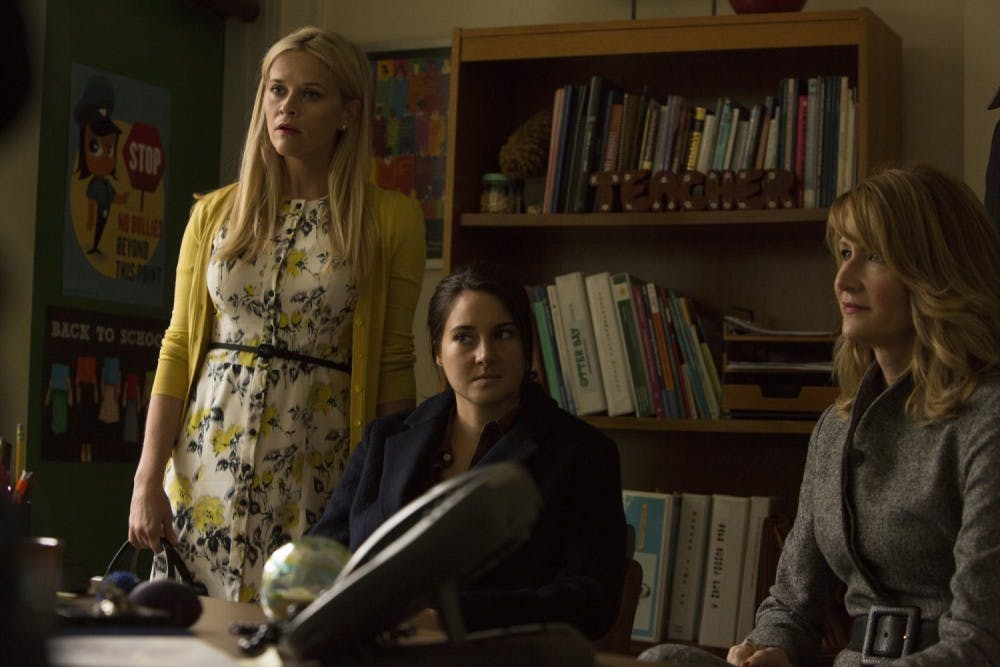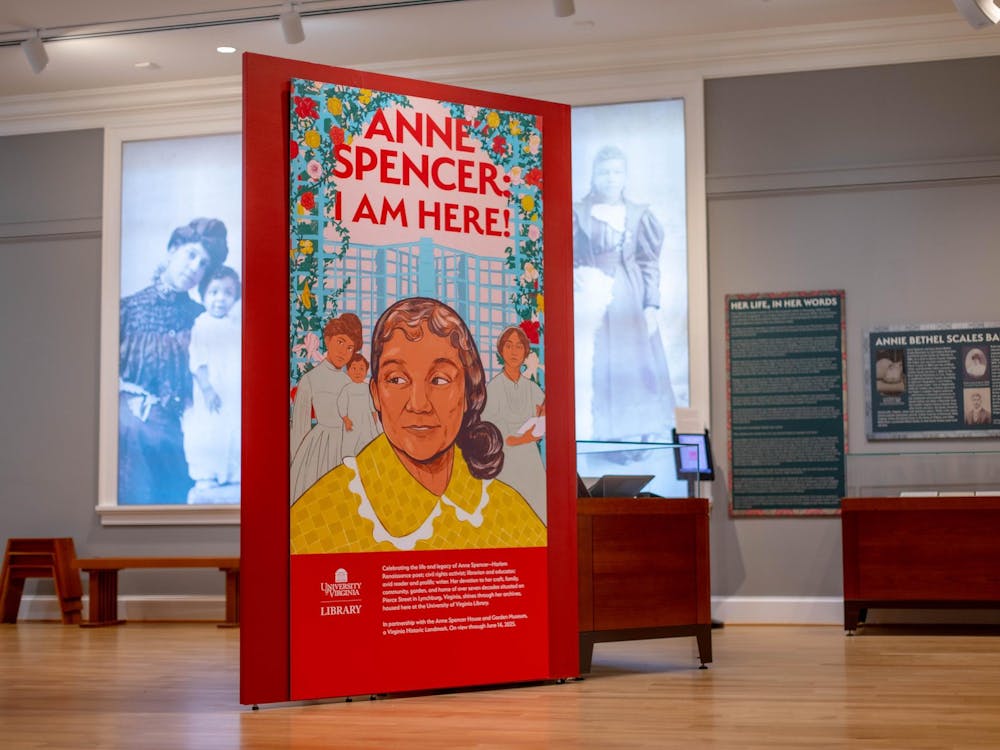One of the most stunning sequences of “Big Little Lies” begins with Jane (Shailene Woodley) sprinting down the beach of Monterey, Calif. Celeste (Nicole Kidman) and Madeline (Reese Witherspoon) join her on either side, arms feverishly pumping and eyes sharply focused on the vast distance ahead. They barely acknowledge each other, yet they charge forward together, bounded in solidarity. These women are resilient and empowered, but more importantly, they have each other. In the larger scope of “Big Little Lies,” this is a small moment, yet it means everything.
The HBO limited series features a murder mystery coinciding with the unraveling of Jane, Celeste and Madeline’s seemingly flawless lives as mothers of first graders in the immaculate, elitist town of Monterey. Between its engrossing mystery, catty Greek chorus and privileged helicopter-mom feuds, it may be tempting to dismiss “Big Little Lies” as escapist flair.
However, thanks to the visions of director Jean-Marc Vallée and creator David E. Kelley, the show quickly transcends its cliched qualities deserving of such criticism. Ultimately, “Big Little Lies” isn’t about murder or cutthroat rivalries. It’s about domestic abuse, dissatisfaction with motherhood, psychological effects of rape, pervasiveness of misogyny and — perhaps most crucially — the unshakable power of female friendship.
In the series premiere “Somebody’s Dead,” Madeline and Celeste pursue Jane as a new acquaintance. They take her to a shabby-chic coffee shop and instantly defend her once her son, Ziggy, is accused of choking a classmate. Initially, their good-natured endeavor appears disingenuous. Madeline and Celeste have lived in Monterey for years and are well-adapted in its artificial social ecosystem. They reside in grandiosely pristine mansions and prioritize taking care of their children over a career. Meanwhile, Jane is the young newcomer described as a “dusty old Prius parked outside of a Barney’s.” As the sole provider for Ziggy, she sleeps on a sofa bed in her bungalow so he can have his own bedroom.
Dated tropes suggesting women make better competitive frenemies than legitimate allies are still ubiquitous in today’s media à la “The Neon Demon,” “Black Swan” and “Clouds of Sils Maria.” Because of inescapable exposure to hostile female relationships characterized by conflict and hysteria, the close-knit trio of “Big Little Lies” seems inevitably doomed. Surely Madeline’s playful jabs at Celeste’s beauty and façade of a perfect life hide true animosity. Of course Jane secretly resents Madeline and Celeste’s economic immunity, and their affinity for Jane will certainly vanish as soon as the next local commodity arrives.
However, “Big Little Lies” circumvents these preconceived notions about female relationships. Madeline, Celeste and Jane harbor a deep allegiance rooted in sincere kindness and empathy in spite of their differences. Though they frequently declare their admiration for each other, the show is at its most gut-wrenchingly honest during unspoken moments of genuine connection and loyalty. When Jane forgets last-minute about Ziggy’s school project, Madeline immediately arrives at her house, poster board and markers in hand. Without hesitation, Celeste briefly comes out of retirement as a lawyer to help Madeline defend the controversy surrounding the local production of “Avenue Q.” Even amidst all the politics, drama and other threatening forces of Monterey, their love for each other is never compromised.
The riveting performances from the three actresses elevate the intimacy of their respective characters’ relationships, as well as the general mayhem of their everyday lives. Witherspoon provides a career-defining performance by infusing the aggressive Type-A Madeline with surprising vulnerability as her anxiety and resentment of past relationships unveil. As Jane, Woodley realistically conveys the dilemma of attempting to heal from sexual trauma while single-handedly raising a child in an often hostile community. From her awkward body language during couples therapy sessions to inhibited smiles hiding a layer of pain, Kidman gives a phenomenal performance as the enigmatic Celeste.
The empowering depiction of female camaraderie is undoubtedly the crowning achievement of “Big Little Lies.” However, the show offers plenty of other mesmerizing intricacies — from innovative editing to humanizing antagonistic characters to a satisfying, feminist finale. In its seven episode duration, the show provides poignant commentary on complex subject matter — domestic abuse, the nature versus nurture debate — without ever feeling cluttered. Consistent with its prodigiously complicated characters, there is much to be found below the surface in “Big Little Lies.”






